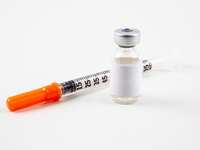- Categories :
- More
How to Care for Dental Implants Following Your Procedure

By Dr. Stephens
At Stephens & Gatewood Dentistry, we are committed to ensuring that every patient gets outstanding care for every procedure, including dental implants. We take the time to get to know each patient personally to deliver care that perfectly meets your needs and achieves your goals. Our talented and well-trained team utilizes the latest technology to provide quality treatment and results. We approach every procedure with consideration and compassion to help you enjoy a comfortable experience.
But when you leave our office after your dental implant procedure, you must take care of your dental implants. Here are some guidelines to help you out, although you’ll get more specific postoperative instructions at the time of your surgery.
Do I Need a Caregiver After Implant Surgery?
Dental implant surgery is a relatively minor surgical procedure, so it’s not necessary to hire a nurse or recruit a responsible adult friend or family member to monitor you after the procedure.
However, if you had sedation dentistry along with your implant surgery, you should have a responsible adult around until you’ve fully recovered, especially if you underwent IV sedation or general anesthesia (very rare for implant surgery).
Managing Bleeding
Expect bleeding after surgery. It will likely be minor and easy to manage. Note that it can look like more blood than it is when it’s mixed with saliva. You may leave our office with gauze over the surgical area. You can apply gentle pressure and change the gauze as necessary and recommended by your postoperative instructions.
Managing Swelling
Swelling is part of your body’s healing process, so that you can expect some at the surgical site. You might also experience minor bruising on your cheek near the implant—control swelling by applying a cold pack to the cheek. Don’t apply ice directly to your skin- remember to insulate it with a damp cloth.
Limit Activities
Dental implant placement is a relatively minor surgical procedure, but it’s still surgery. You will want to limit your activities a little bit after dental implant surgery.
Take the rest of the day off after your surgery. You can go back to non-strenuous work or recreation the next day. However, avoid strenuous activities for ten days following your dental implant surgery. This means no strenuous work, vigorous exercise, or highly active recreational activities. After ten days, you can start working back up to your previous level of activity.
Oral Hygiene Guidelines
Don’t brush or floss your teeth for the rest of the day of surgery. Also, avoid rinsing and spitting. The next day, brush and floss normally, except for the surgical area. You can clean this area by gently rinsing it with salt water.
We will evaluate your healing at each follow-up appointment and recommend when you can return to your regular hygiene routine.
Diet Recommendations
Do not eat anything until your mouth is no longer numb. Trying to chew when you’re numb can lead you to bite yourself with surprising severity. Also, avoid hot beverages–you can burn yourself while numb. As the sensation returns, you can resume drinking hot beverages and eating.
On the day of your surgery, eat only soft foods. This is not the same as a liquid diet. You can eat foods but stick to foods that don’t require hard chewing. Foods like mashed potatoes, eggs, and yogurt are great options to eat while healing.
Don’t drink alcohol for at least 48 hours after surgery, as this could interfere with important short-term healing.
Until cleared to do so, don’t eat foods that break into hard and/or sharp fragments that could get into your wounds, such as chips or nuts.
If your implant dentist installed a provisional restoration, you might be tempted to start chewing with it immediately. However, wait until your dentist clears you before you begin chewing with your new replacement teeth.
When to Take Medications
If we prescribe specific medications, follow the label instructions about when and how much to take. If you’re confused about the directions, contact our office for clarification.
In general, wait to take pain medications until sensation starts to return, at the first sign of “pins and needles” or similar sensations in the numbed area.
If we don’t prescribe medication, you can take over-the-counter medications as directed instead. Follow the label instructions, and don’t exceed the recommended dosage unless your dentist explicitly instructs you.
Warning Signs to Watch Out for
Dental implant complications are rare. It’s still important to be vigilant, though, because if they do occur, a timely response can improve your outcomes.
Contact our office if you:
- Are confused about postoperative care or medication instructions
- Experience significant bleeding for more than 24 hours after surgery
- Have increases in swelling or pain after the first few days
- Develop:
- Foul-smelling or -tasting discharge from the wound
- Excessive warmth at the surgical site
- Fever
- Other signs of infection
When in doubt, it’s better to call. We can reassure you or clarify anything you have questions about. We believe you deserve the best possible care, including having answers to all your questions and concerns to enjoy healthy healing with peace of mind.
Get Dental Implants in Spring, TX
At Stephens & Gatewood Dentistry, we offer optimal dental care for all our patients, including dental implant patients. We invite you to schedule a consultation with one of our dentists and see how our approach to patient care is different.
Please call (832) 847-6838 or use our online form today to schedule an appointment at one of our two locations, Cypresswood and Auburn Lakes.












